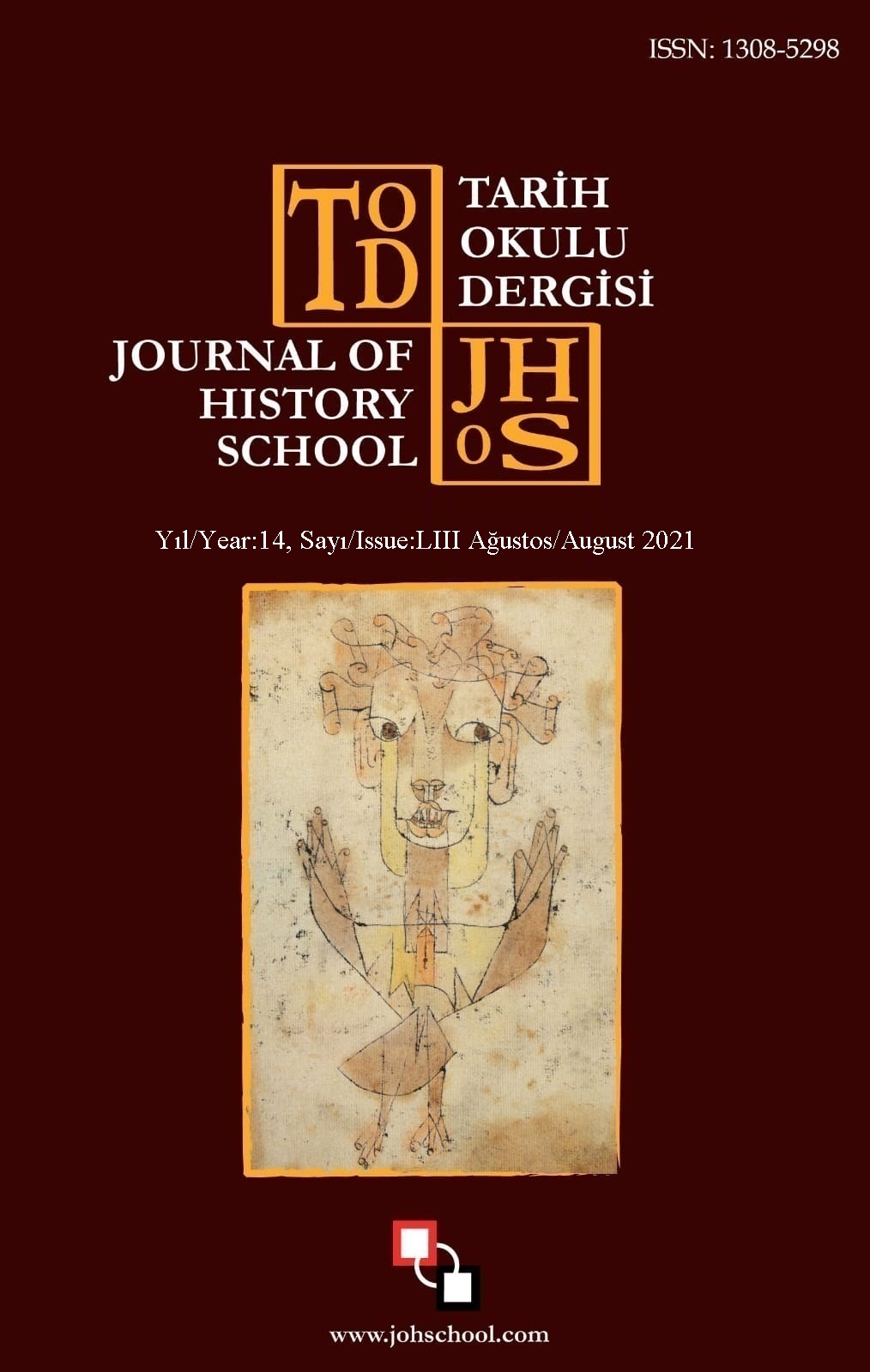Author :
Abstract
Toplumcu gerçekçiliğin kaynağı Marksizmdir. Marksizm ilk olarak Rusya’da parti politikası olarak ortaya çıkar. Partinin resmî deolojisini halka benimsetmek için ortaya çıkan Marksizm ülkenin resmî sanat anlayışı olur. Ezilenin, işçi sınıfının sıkıntılarını dile getiren Marksistler işçiyi ve köylüyü bilinçlendirmeyi amaçlarlar. Türkiye’de cumhuriyetin ilk yıllarında şiir, roman ve hikâye türlerinde eserler verilmeye başlanır. 1940’tan sonra bulanda nicelik ve nitelik yönünden yetkin eserler verilir. Toplumcu gerçekçi anlayışta yazar sadece bulunduğu döneme ışık tutup o dönemin sorunlarını dile getirmez. Aynı zamanda topluma ideal olanı göstermeyi ilke edinir. Toplumcu gerçeklik ilk olarak işçi ve köylünün sıkıntılarını dile getirip onları bilinçlendirmeyi amaçlasa da daha sonraları şehrin ve ulusun sıkıntılarını da ele almıştır. Bu çalışmada ise Behiç Ak’ın çocuk kitapları toplumcu gerçekçi sanat anlayışı yönünden incelenmiştir. Behiç Ak kitaplarında bir taraftan toplumun aksak yönlerini, yozlaşan ve tüketilen değerlerini ortaya koyarken diğer taraftan ideal olanı ortaya koymuştur. Bu bağlamda yazarın beş adet çocuk kitabında (Akvaryumdaki Tiyatro, Vapurları Seven Çocuk, Geçmişe Tırmanan Merdiven, Bulutlara Şiir Yazan Çocuk, Galata’nın Tembel Martısı) toplumcu gerçekliğin izlekleri araştırılmıştır. Nitel yaklaşıma uygun olarak hazırlanan çalışmada doküman inceleme yoluyla toplanan veriler, içerik analizi ile çözümlenmiştir. Sonuç olarak araştırmada; a. hayat tarzı, b. iletişim, c. doğaya yabancılaşma, d. tüketim-metalaştırma ve e. teknoloji kodları tespit edilmiştir. İncelenen kitapların tümünde bütün kodların yer aldığı ancak en çok hayat tarzı koduna, en az da doğaya yabancılaşma koduna yer verildiği görülmektedir.
Keywords
Abstract
The source of social realism is Marxism. Marxism first appeared in Russia as party politics. Marxism, which emerged to make the people adopt the official ideology of the party, became the official art understanding of the country. Marxists aim to raise awareness of workers and peasants by expressing the troubles of the oppressed and the working class. In the first years of the republic in Turkey, works in the genres of poetry, novels and stories began to be produced. After 1940, works that are competent in terms of quantity and quality were produced in this field. In a social realist approach, the authors do not merely shed light on the period in which they live and express the problems of that period. At the same time, they adopt the principle of leading the society to what is ideal. Although the social realism aimed to raise awareness of the workers and peasants at first, it later addressed the problems of the city and the nation. In this study, Behiç Ak's children's books were examined in terms of social realist art understanding. In his books, Behiç Ak reveals the flawed aspects of society, its corrupt and consumed values, on one hand, and reveal what is ideal, on the other. In this context, the themes of social realism were examined in the author's five children's books “Akvaryumdaki Tiyatro” (Theatre in the Aquarium), “Vapurları Seven Çocuk” (The Child Who Loves the Boats), “Geçmişe Tırmanan Merdiven” (The Staircase to the Past), “Bulutlara Şiir Yazan Çocuk” (The Child Who Writes Poems to the Clouds), “Galata'nın Tembel Martısı” (Lazy Seagull of Galata). In the study prepared in accordance with the qualitative approach, the data collected through document analysis were analyzed by content analysis. As a result, the following technology codes were found: a. lifestyle, b. communication, c. alienation from nature, d. consumption-commodification and e. technology. It is observed that all the codes are included in all of the books examined, but the life style code is included the most while alienation from nature code the least.





